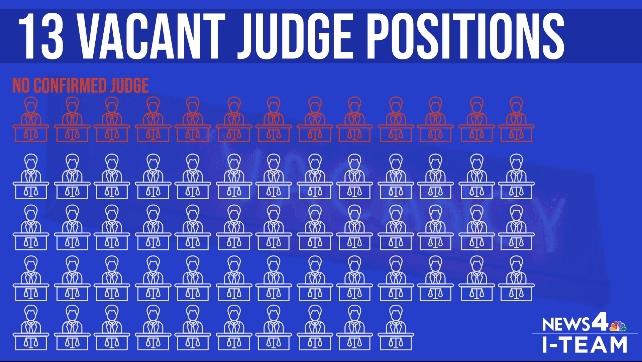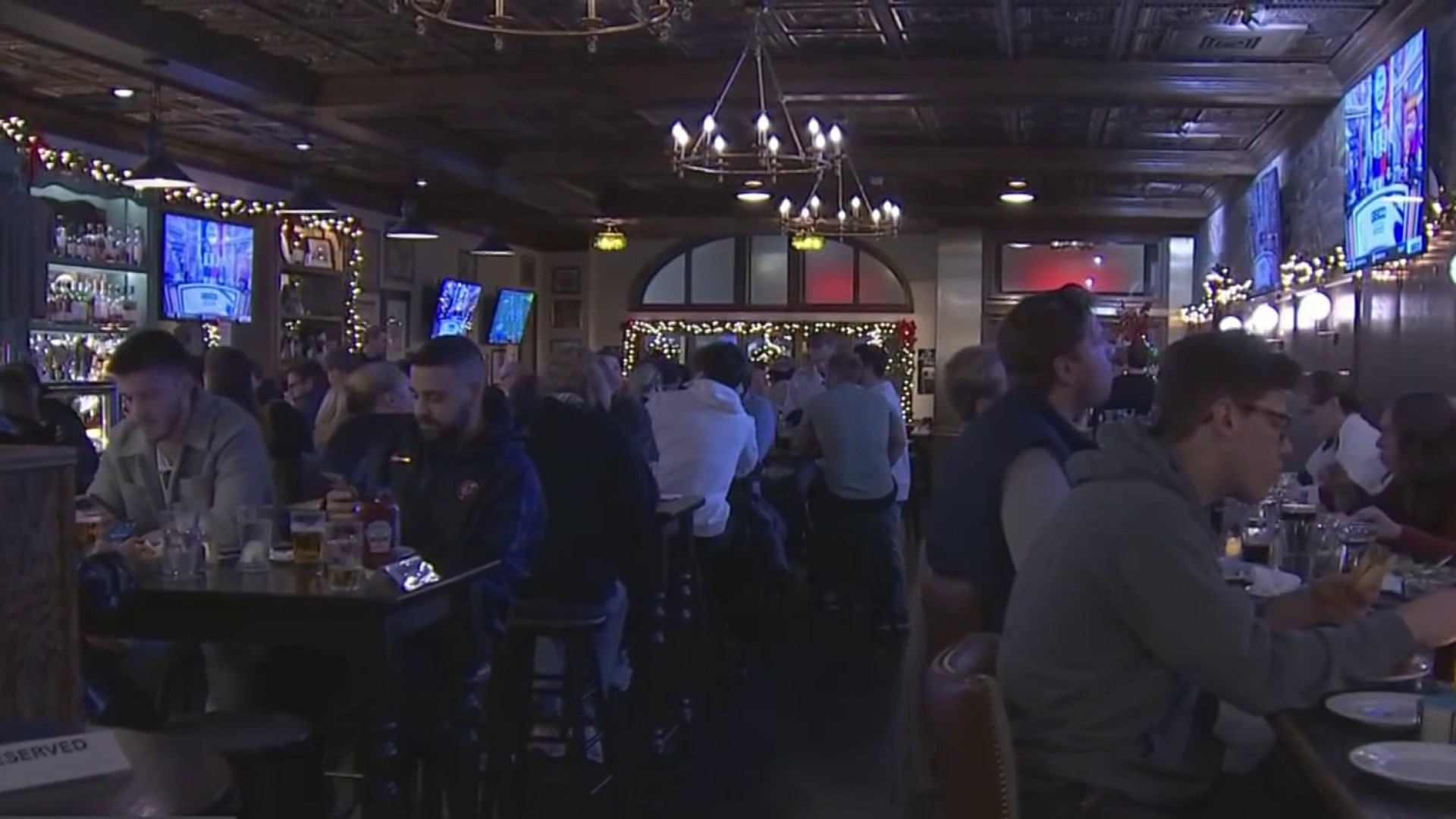A growing number of judicial vacancies has D.C. Superior Court at a “breaking point,” hindering the court’s ability to process thousands of residents’ cases, Chief Judge Anita Josey-Herring warned in an interview with News4.
Vacancies have plagued the court for years but are now reaching what many are calling a crisis. Thirteen of the court’s 62 judicial positions are unfilled, according to the court. As a result, judges are overworked, cases are delayed and – Josey-Herring fears – justice is paying the price.

“The fact of the matter is, it's not sustainable,” Josey-Herring said.
We've got the news you need to know to start your day. Sign up for the First & 4Most morning newsletter — delivered to your inbox daily. Sign up here.
“We don't have the time to do that extra careful, thoughtful consideration because of the pace at which we're moving,” she said.

Unlike every other city in America, D.C has to wait on the U.S. Senate to confirm its local judges. When Josey-Herring was nominated by President Bill Clinton in 1997, her confirmation took just 66 days. But now, some judges are waiting years, and it’s her job to keep the courts operating in the meantime.
Local
Washington, D.C., Maryland and Virginia local news, events and information
“I get to make the assignments and I've been playing chess with the assignments to make sure we can keep the court up and running … We're running out of moves,” she said.
The District’s Superior Court processes everything from criminal matters to probate proceedings and civil disputes – with records indicating caseloads in these areas are showing signs of stress.
According to the court, judges in civil courts are handling 400 cases apiece, twice as many as they should. In domestic violence court last year, records show four judges averaged 1,900 cases each. Court records also show the average serious felony case is now taking nearly two years – an increase of nearly seven months from 2019.
When it comes to family cases, the presiding judge of the Family Court Division told the I-Team the number of judges has dropped from 14 a few years ago to 10 judges today.
That’s where Shanita Simms turned for help during an ugly custody battle with the father of her two children. Records show the D.C. woman filed for sole custody of her children in July 2020, alleging abuse and parental kidnapping.

Simms told News4 she thought the process would be handled swiftly, even with disruption due to the pandemic. Instead, her case took more than two dozen hearings, four judges and three years before a judge ruled in her favor.
“It didn't feel like they took their time to listen,” Simms said.
With every new judge, Simms had to retell her story — bringing anxiety and sleepless nights. At one point, she debated whether to withdraw her case because of the delays.
“I think maybe after the third judge, I was just like, well, maybe I should just keep it how it is. Just let him do what he wants, because I was tired of going to court,” she said.
According to the chief judge, the backlogs were compounded when the D.C. Council overhauled its criminal justice code, sending more cases to their docket.
In a May 3 letter to the U.S. Senate, Josey-Herring and D.C. Court of Appeals Chief Judge Anna Blackburne-Rigsby explained that “as a result, there are more cases that must be heard within statutorily mandated time limits, by substantially few. Judges often double and triple book trial dates to comply with speedy trial statutes.”
The judges noted the Court of Appeals has two vacancies out of nine judges, noting case dispositions were down 44% last year compared to 2013, when it last had a full bench.
Misty Thomas, executive director of the D.C.-based Council for Court Excellence, said the impact of the vacancies is trickling down to the thousands of people who rely on the court for their most pressing matters.
“We are not letting people resolve these crisis points in their lives. And that's really a big deal, especially for low and moderate-income people,” she said.
According to her organization, D.C. hasn't had a full bench in 11 years, which she said has untold impact on the functioning of the city.
The longer cases are delayed, “the more we're delaying administration of justice, even in terms of our public safety,” Thomas said.
The White House has nominated 11 people to fill the 13 open seats. In January, a Senate committee advanced six of them.
“All that is left on the Senate floor is the willingness to use the political capital to move them forward with a up or down vote,” Thomas said.
Majority Leader Chuck Schumer, D-N.Y., runs the Senate calendar, but has yet to schedule that vote. In late 2022, when the Senate last approved some of D.C.’s judicial nominees, Schumer said in a statement, "This Democrat-led Senate will not ignore the needs of the local D.C. courts."
Following multiple written and in-person inquiries from the I-Team, a spokesman for Schumer repeated that line and said they are “working hard to get these nominees confirmed this year.”
The spokesman also blamed the delays on Republicans he said “have consistently used partisan tactics to delay the confirmation of President Biden’s qualified nominations to the bench.”

In response, a spokesman for Minority Leader Mitch McConnell, R-Ky., told the I-Team, “Leader Schumer controls the Senate floor and has the power to confirm them should he wish to.”
As the District waits for that vote, the Court is facing at least one more vacancy this year: Josey-Herring’s. After nearly 30 years on the bench, she is stepping down in September.
This story was reported by Ted Oberg, produced by Katie Leslie, shot by Steve Jones and Jeff Piper, and edited by Jeff Piper. Washington Bureau photographer Evan Carr contributed to this report.



